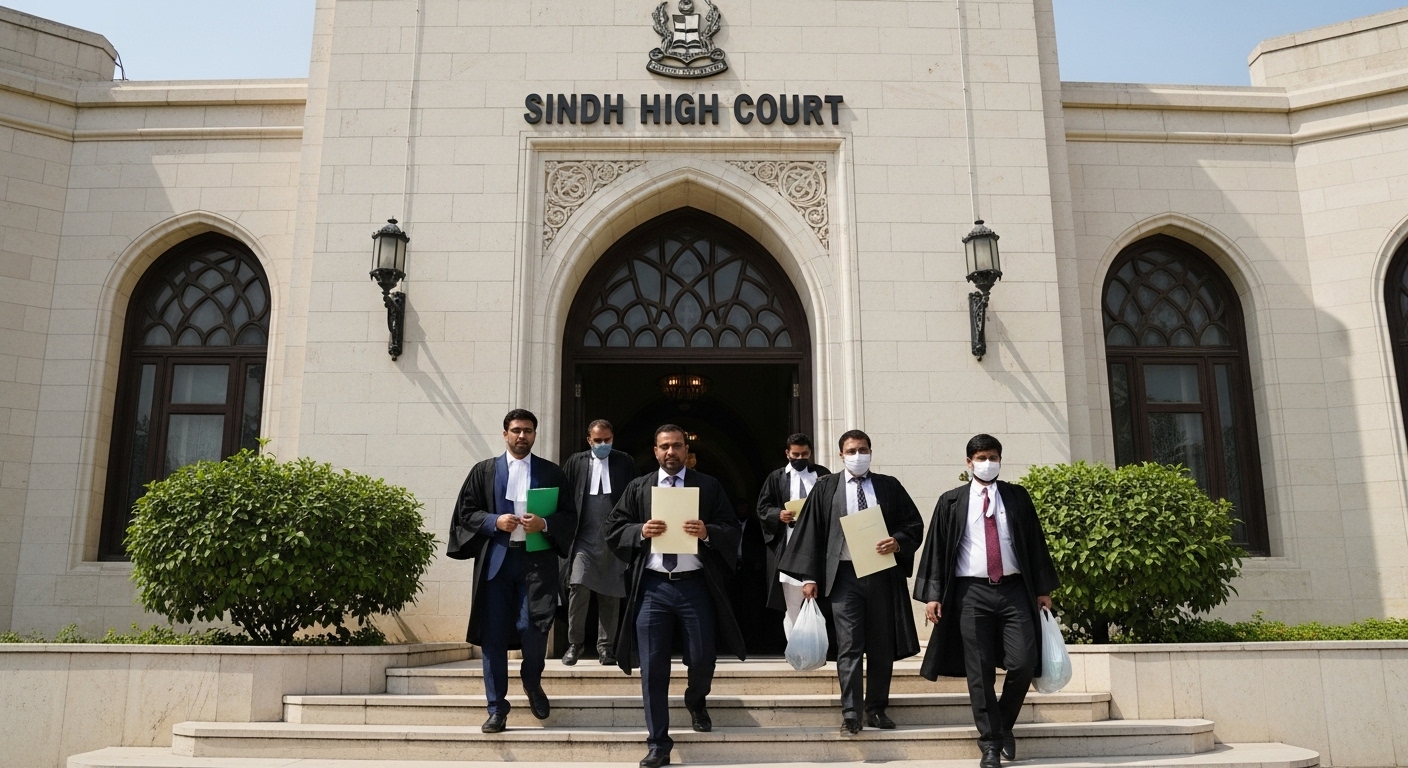Plastic Bag Ban Challenged in Sindh High Court by Manufacturers
Karachi – July 16, 2025:
Plastic bag manufacturers have filed a petition in the Sindh High Court, opposing the Sindh government’s decision to enforce a complete ban on plastic bags across the province. The ban, which took effect on June 15, 2025, was part of a major environmental campaign led by the Department of Environment, Climate Change, and Coastal Development.
As per the official notification, the restriction covers black, recycled, oxo-degradable, and other non-biodegradable plastic bags. Only eco-friendly and biodegradable alternatives are now allowed in the market.
Manufacturers Raise Concerns
Two plastic bag manufacturers approached the Sindh High Court through their lawyer, claiming that the government did not consult the stakeholders before implementing the ban. They stated that they had already produced large quantities of plastic bags, and the sudden ban has made it impossible to fulfill existing orders.
The petitioners argued that the ban has affected thousands of workers and businesses who depend on the plastic industry for their livelihoods. “The government’s decision was rushed and did not take into account the economic damage it would cause,” said the lawyer representing the manufacturers.
SEPA and Government Respond
Director of Sindh Environmental Protection Agency (SEPA), Imran Sabir, appeared before the court and defended the government’s decision. The lawyer representing SEPA explained that plastic bags are not just a local problem, but a global environmental threat.
He pointed out that many countries, including Bangladesh and Sri Lanka, have already banned plastic bags. He also mentioned that even Pakistan’s Prime Minister’s Secretariat had recommended a ban on harmful plastic materials. “This is a national issue, not just a provincial one,” SEPA’s lawyer told the court.
Clarifying the Scope of the Ban
To address the concerns raised, the SEPA lawyer clarified that the government has not banned all plastic products—only two out of eight categories of plastic have been prohibited, specifically those that are most harmful to the environment. “Only around 20% of plastic shopping bags are made locally,” he added, suggesting that the overall economic impact might be less than claimed.
The high court bench asked the petitioners to provide details of the taxes they paid during the last financial year, indicating that the court would consider the legal and financial implications before making a decision.
Ban to Protect the Environment
The Department of Environment emphasized that this ban is a firm step under its zero-tolerance approach to prevent environmental damage. A spokesperson said, “Plastic bags are one of the main causes of pollution, blocking drains, harming marine life, and damaging soil quality.”
The department emphasized that the public should switch to reusable cloth or paper bags, which are safer and environmentally friendly.
Hearing Adjourned
After hearing both sides, the Sindh High Court adjourned the case until July 23, 2025, giving time for further submissions and clarifications from both parties.
As the debate continues, this case has highlighted the ongoing tension between environmental protection and economic interests—raising important questions about how Pakistan can move toward sustainability without harming jobs and small businesses.




